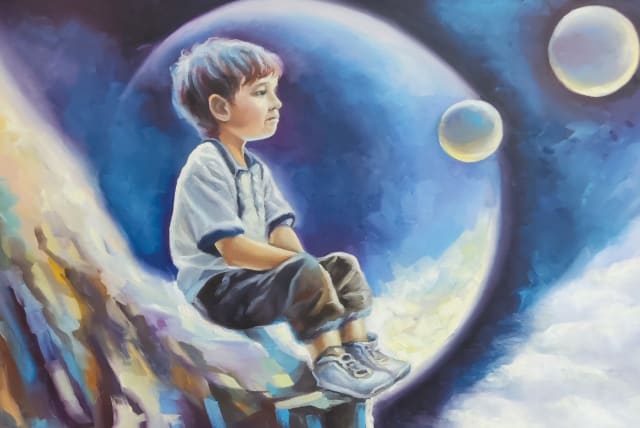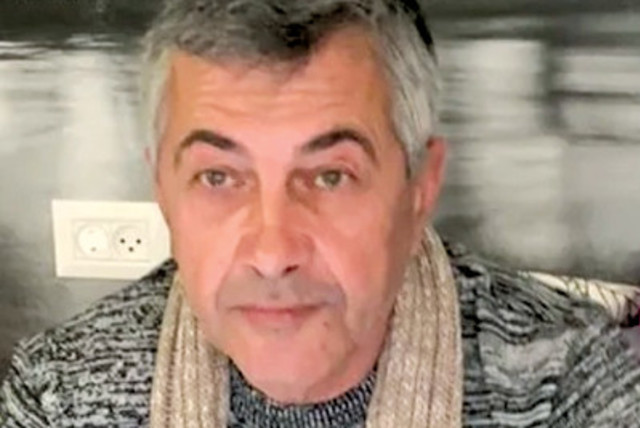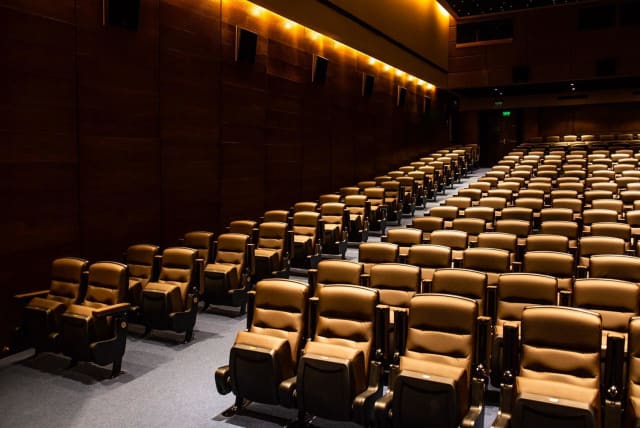Evgeny Gofman, whose beautiful artwork is now on display at The Gallery for Global and Israeli Art in Tel Aviv, is an international artist and member of the Association of Visual Artists in Israel, as well as a member of the Association of Visual Artists in Paris, UNESCO.
He was born in the Russian city of Kursk in 1965. At the age of 17, he was admitted to the university’s art faculty. After serving in the Red Army, he returned to school and earned a master’s degree. Gofman specialized in various fields of art and explored a variety of techniques, but he consistently favored oil painting on canvas.
At age 25, Gofman arrived in Dimona with his wife and two-year-old daughter. Everything was foreign to him – the language, the weather, the people, the sights, and the smells. “As an artist, I felt out of place,” he recalls.
Dimona was a city devoid of art at the time. The local schools had no art classes, only “craft classes.” There was little understanding or interest in art. Soon after, Gofman joined the Education Ministry and initiated an art course for the Black Hebrew community in Dimona, where he developed the program and eventually prepared students for matriculation in five units. After some time, he moved with his family to Beersheba, where he connected with a thriving community of artists and found his place in the city.
“Painting, for me, is a way of life and a means to express the world as I perceive it,” he says. “While painting, a dialogue with my soul unfolds, expressing what I feel and see, followed by a desire to convey it. There’s a strong impulse to depict these feelings on canvas. I paint what I sense in my surroundings, what I dream of. Sometimes, when I experience a certain situation, it compels me to translate my responsive emotions onto the canvas. Generally, I create numerous sketches, and only at the end does it manifest on the canvas. An idea for a painting can reside within me for months, or even years, until it finally finds its place on the canvas. My primary objective is to channel all the energy and emotions that have accumulated within me onto the canvas. Technical challenges don’t impede me,” he says.
A dialogue with the soul
Gofman specializes in Japanese philosophy and martial arts, advocating the art of method without method. Feelings change, stories change, and reality changes; thus the style of his works evolves accordingly. The realization on the canvas can sometimes be surrealistic, sometimes cubist, sometimes realistic, and sometimes abstract.
“After all, I feel different today than I did yesterday,” he says. “I live life with the understanding that everything flows, and a person does not step into the same river twice.”
In addition to his art, Gofman practices holistic medicine and chromotherapy – a healing method that balances the chakras and harmonizes life. “During the treatment process, I always search for the trigger – the point at which the pain begins. I either touch or refrain from touching that point, and from there the healing process commences. It is a process akin to the creative one, where the quest for a specific point of origin is also central.”
According to the theory of chromotherapy, the soul is intricately connected to color, and maintaining balance is essential. Consequently, during the healing process, a connection is established with the color that is lacking in the patient’s soul, initiating the healing journey. Throughout the treatment, Gofman incorporates his paintings, and the colors, images, and symbols on his canvases have an immediate impact on the patient.
“In my art, I aspire to affect the viewer in a manner akin to the healing process through chromotherapy,” he says. “I strive for a genuine and emotional connection to be forged between the viewer and the colors and images on the canvas.” ■
The writer is a musicologist, scholar of art, and founder of the Tribal Art & Culture Gallery. The Gofman exhibition is on display from October 4 to November 11 at The Gallery for Global and Israeli Art, 13 Baalei Melacha Street, Tel Aviv.








































































































